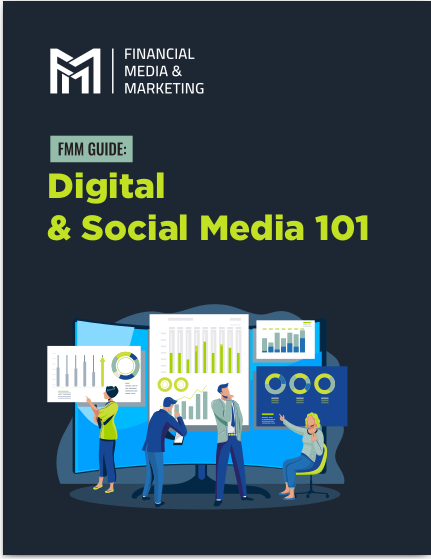Key Takeaways
-
Small yet strategic SEO tweaks can significantly boost your online visibility as a financial advisor.
-
Optimizing your website for search engines can lead to better rankings, increased traffic, and more qualified leads.
Fine-Tune Your Website’s Keyword Strategy for 2025
SEO trends evolve, and financial advisors need to stay ahead by refining their keyword strategies. Search engines are getting smarter at understanding user intent, so stuffing your site with generic financial terms won’t cut it anymore. Instead, focus on:
Prioritize Long-Tail Keywords
Long-tail keywords are specific phrases that potential clients are searching for. Instead of targeting broad terms like “financial advisor,” aim for queries like “best retirement planning tips for 2025” or “how to diversify investments this year.” These keywords tend to have less competition and attract more qualified leads.
Use Natural Language and Conversational Phrases
With the rise of voice search and AI-driven search algorithms, people now ask search engines questions the way they would in a conversation. Optimize your content for phrases like “What’s the best way to invest in 2025?” or “How can I maximize my tax deductions this year?” Doing so ensures your site remains relevant as search behaviors shift.
Regularly Update Your Keyword List
SEO isn’t a one-time effort. You should review and update your keyword list at least every six months to align with industry trends, new client concerns, and Google algorithm updates.
Optimize Your Google Business Profile for Maximum Visibility
Having a well-optimized Google Business Profile (GBP) is crucial for financial advisors looking to attract local clients. Since most people search for financial experts nearby, an up-to-date GBP can significantly improve your online visibility.
Ensure Consistency in Business Information
Your business name, address, and phone number (NAP) should be identical across your website, Google Business Profile, and other online listings. Inconsistent details can harm your rankings and confuse potential clients.
Keep Your Profile Active with Fresh Content
Google rewards businesses that keep their profiles updated. Post relevant financial insights, industry updates, or even brief market trend analyses. Aim to post at least once a week to keep your profile fresh.
Encourage and Respond to Client Reviews
Reviews play a significant role in SEO rankings and credibility. Request satisfied clients to leave a review and respond professionally to both positive and negative feedback. Regular engagement can enhance your reputation and improve search rankings.
Improve Your Website’s Speed and Mobile Experience
In 2025, Google prioritizes mobile-first indexing, meaning your mobile site is more important than the desktop version. If your website is slow or difficult to navigate on a smartphone, you’re losing potential leads.
Speed Up Your Load Time
Page speed directly affects rankings and user experience. Slow websites increase bounce rates, leading to lost opportunities. Use tools like Google PageSpeed Insights to check your site’s speed and implement fixes such as:
-
Compressing images without sacrificing quality
-
Using a content delivery network (CDN) to improve loading times
-
Minimizing JavaScript and CSS files
Make Your Website Mobile-Friendly
Your website should adapt seamlessly to all screen sizes. Google’s mobile-first indexing means that if your site doesn’t function well on smartphones, you may struggle to rank highly. Use responsive design, larger fonts, and touch-friendly buttons to create a seamless mobile experience.
Implement Secure HTTPS Protocol
Security matters to both search engines and users. Having an HTTPS-secured site builds trust, improves rankings, and ensures that client data remains protected. If your site still runs on HTTP, making the switch should be a priority.
Create High-Quality, Evergreen Content That Converts
SEO is fueled by content, and as a financial advisor, you need a strategy that positions you as an authority in your field. But it’s not just about writing any content—it needs to be informative, engaging, and optimized for search engines.
Focus on Value-Driven Content
Your content should answer common financial concerns and provide actionable insights. Write about:
-
The latest tax-saving strategies for 2025
-
Retirement planning updates for the current year
-
Investment trends to watch
Incorporate Structured Data Markup
Google’s algorithms love structured data because it helps categorize and display information better. Use schema markup for:
-
FAQs related to financial planning
-
Financial service offerings
-
Investment guides
This can improve your chances of appearing in rich search results and featured snippets.
Regularly Update and Refresh Older Content
SEO isn’t just about creating new content—it’s also about improving existing content. Review and update older blog posts, replacing outdated financial references with current insights. A refresh every 6-12 months can keep your articles ranking higher.
Strengthen Your Backlink Profile to Boost Authority
Backlinks—links from other reputable websites to yours—are one of the strongest ranking factors. In 2025, quality matters more than quantity.
Secure Links from Authoritative Finance Sites
Guest blogging on reputable financial websites or industry publications can significantly improve your site’s credibility. Reach out to finance blogs, investment forums, and professional associations to contribute articles in exchange for backlinks.
Leverage Local Partnerships
Collaborating with local businesses, accountants, or estate planners can earn you valuable local backlinks. Cross-promote each other’s services and build relationships that benefit both parties.
Avoid Low-Quality Link Building
Buying backlinks or using spammy link-building tactics can harm your SEO instead of helping it. Focus on building natural, high-quality links over time.
Enhance Your SEO Strategy for Sustainable Growth
SEO isn’t a one-time fix—it requires continuous effort. By refining your keyword strategy, optimizing for mobile, improving your Google Business Profile, producing valuable content, and strengthening your backlink profile, you set yourself up for long-term success in 2025 and beyond.










